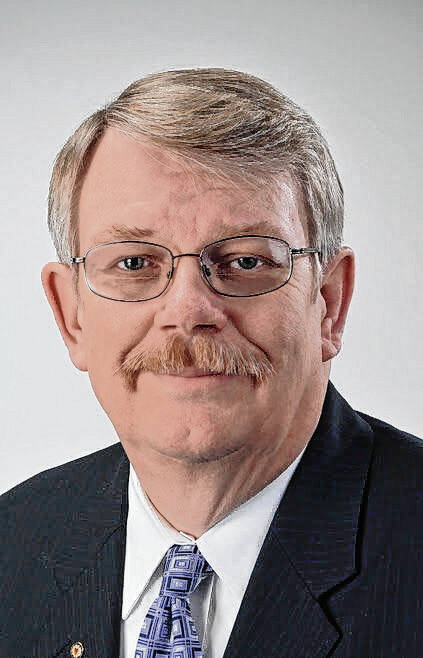
Mark Franke
Has there ever been a time and place whose residents were blessed as generously as we Americans are in this year of our Lord 2022?
I am a student of history, and I sure can’t think of one.
So why do we engage in so much interminable complaining? Could it be that our abundance has inured us to these very blessings? We are too often motivated by the cardinal sin of avarice, what Aesop illustrated in his fable of the dog with the bone that saw its reflection in the stream and wanted the other bone, too. We know how that turned out.
Thanksgiving Day should be a flashing stop sign on our discontent so we can focus on what we have, not what we want. That is hard for us Americans, constantly being reminded of how someone else has more than we have or, even worse, nicer things. If 21st century America has an original sin, it is covetousness. Or maybe it is resentment, a psychic inability to rejoice in someone else’s good fortune.
I know things aren’t perfect. They never can be, given human nature. But is the glass half full or half empty? Objectively, most people in the world would say it is more than half full in the USA. Why are so many thousands leaving their countries to get into the United States? They see more clearly than we who have lived here our entire lives.
Subjectively, however, things can look quite miserable if we set our minds to it. If we want to be unhappy, then unhappy we will be. But why would anyone choose to be unhappy?
There is an alternative. Nov. 1 was All Saints Day in the Christian church. The traditional Gospel reading for that day is the Beatitudes from the Sermon on the Mount in Matthew 5. Each begins with “Blessed are the …” who then are promised paradoxically something they obviously don’t possess. But do they?
A friend, a theology professor at a local Lutheran seminary, has a different perspective on these blessings. The reward is not future, to his thinking, but present here and now. When Christ says, “Blessed are the meek, for they shall inherit the earth,” my friend doesn’t see this as a promise of something to come at some indefinite time in the future. He asserts that the meek already have inherited the earth. Only through their humility can they recognize this.
Think about that. If I am meek, call it humble if you will, then I already possess everything I need for my happiness. Why would I reject this only to make myself miserable?
My friend suggested a name for what we have become: The age of scoffers. I sincerely wish he was wrong.
Is it the national news media that are to blame? We don’t have to believe the fear, uncertainty and doubt they scream all day long. There may be some actual bad news in there somewhere, but it is hard to hear it among the din of the “sky is falling” blustering in every story.
Allow me to offer one example that is hitting close to home. For retirees on a fixed income, today’s inflation is no theoretical economic construct. It has affected our family spending plans in a tangible way every time a cashier rings up a sale. Yet I can still fuel our vehicles at the gas station and my wife buys whatever groceries we need. Discretionary spending may be postponed, but that is the definition of discretionary.
And it is instructive to realize how much of American spending is discretionary. And wasteful. A recent book I read (“How the World Really Works: The Science Behind How We Got Here and Where We’re Going” by Vaclav Smil) argued 30% of all food served in America is wasted. Remember this next time you are at a restaurant and send back a half-filled plate.
I am not unsympathetic toward those who are struggling to make ends meet. My wife and I married as undergraduates and lived on a weekly budget of $25, including the recurring costs of our first child. That’s why God created grandparents on the eighth day. It may be a distant memory, but the memory remains vivid.
As we head into a recession, and be assured that is where we are headed, things will get difficult for many in our communities. And so I suggest a second theme for Thanksgiving Day: A resolution to help those less fortunate by giving of our time and treasure through the myriad religious and other nongovernmental charities there for just that purpose. There is enough in this country to go around. Voluntary sharing is as American as, well, turkey and pumpkin pie.
Meekness can be its own reward, if only we will accept it.
Mark Franke, an adjunct scholar of the Indiana Policy Review and its book reviewer, is formerly an associate vice chancellor at Indiana University-Purdue University Fort Wayne. Send comments to [email protected].
